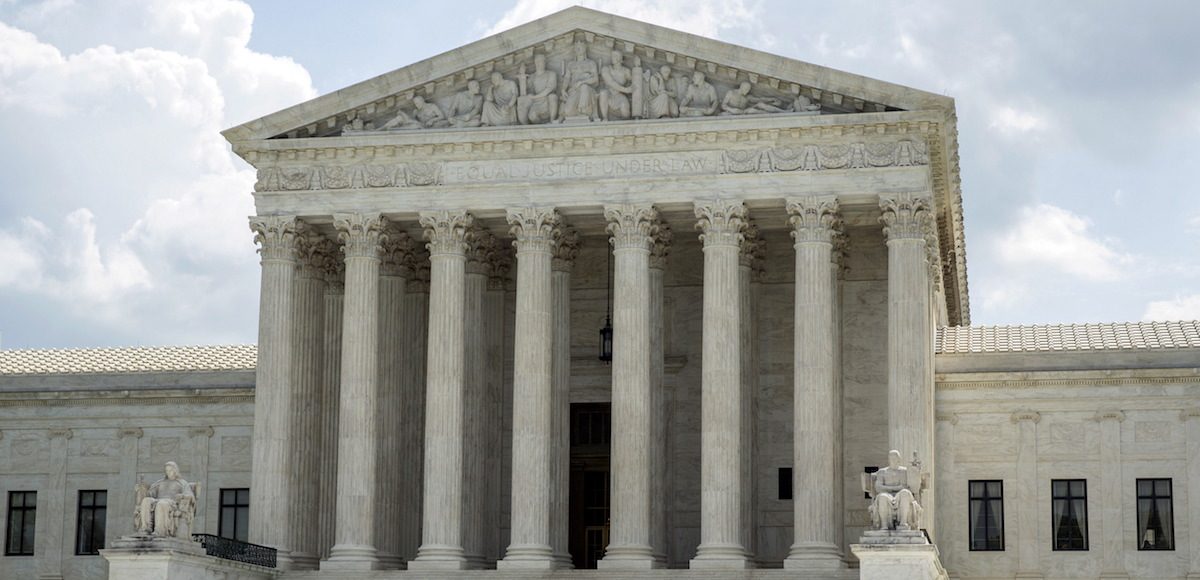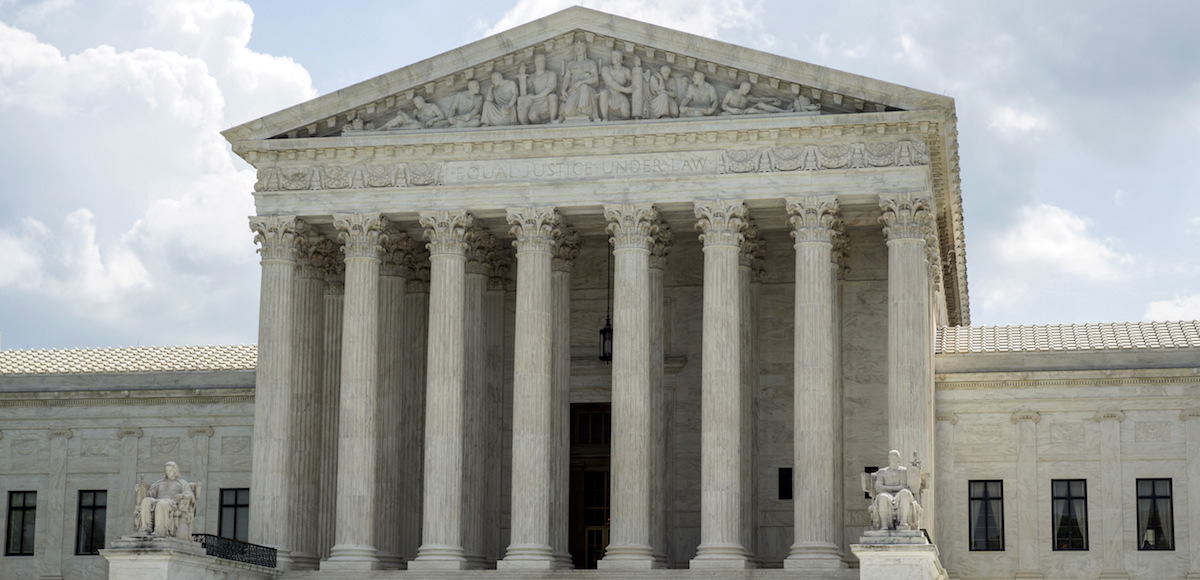

The U.S. Supreme Court stands in Washington, D.C., on May 18, 2015. (Photo: Reuters)
The U.S. Supreme Court has given Hawaii et al until noon Tuesday to respond to the government’s motion on the reinstated travel ban. The Department of Justice (DOJ) filed a Motion to Clarify and Application for Stay after Hawaii Attorney General Douglas S. Chin judge-shopped seeking a broader definition pertaining to those permitted to enter the U.S.
The Court in June reinstated President Donald J. Trump’s travel ban until oral arguments were heard in October, 2017. With the ruling, the order banning travelers from six Muslim-majority countries identified as hotbeds of terrorism is back in effect with the exception of those who have bona fide relations to U.S. citizens or institutions etc.
The Trump Administration further interpreted the phrase “close familial relationship” to include fiancé(e)s and parents- and children-in-law.
But U.S. District Judge Derrick Watson, a leftwing ideologue appointed by Barack Obama, decided again to interfere with the travel ban after Hawaii Attorney General Chin filed the request. He, along with the 9th Circuit Court of Appeals, the most liberal and overturned court in the land, were reversed when the Supreme Court reinstated the order last month.
The judge unilaterally decided to expand the interpretation to include grandparents, grandchildren, aunts, uncles, nieces, nephews, cousins and siblings-in-law.
“Once again, we are faced with a situation in which a single federal district court has undertaken by a nationwide injunction to micromanage decisions of the co-equal Executive Branch related to our national security,” Attorney General Jeff Sessions said in a statement. “By this decision, the district court has improperly substituted its policy preferences for that of the Executive branch, defying both the lawful prerogatives of the Executive Branch and the directive of the Supreme Court.”
Judge Watson’s order would essentially expand eligible travelers to anyone working with refugee resettlement agencies. The government argues the link is too indirect to constitute a genuine close relationship required by the High Court’s June 26 order.
“The district court has issued decisions that are entrusted to the Executive Branch, undermined national security, delayed necessary action, created confusion, and violated a proper respect for separation of powers,” Attorney General Sessions added. “The Supreme Court has had to correct this lower court once, and we will now reluctantly return directly to the Supreme Court to again vindicate the rule of law and the Executive Branch’s duty to protect the nation.”
President Trump’s executive order came on the heels of the Department of Homeland Security (DHS) revealing nearly a third of the 1,000 domestic terrorism cases currently being investigated by the Federal Bureau of Investigation (FBI) involve those admitted to the U.S. as refugees.
Officials said some of those 300 came to “infiltrate” the U.S., while others were radicalized once they were in the country. The report represented the first official solid tie between the refugee resettlement program and an increase in domestic terrorism.
The People’s Pundit Daily (PPD Poll) Big Data Poll has repeatedly found majority support for President Trump’s executive order.







